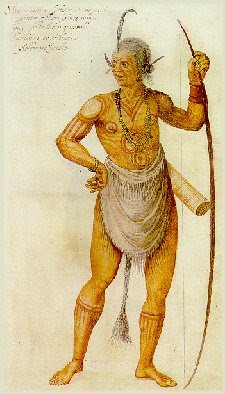I wanted to provide a few additional notes so you can prepare well for the final. As you know from the syllabus the format is multiple choice, short answer, and essay. There will be approximately 50 questions and three essays to answer. Please review the books as well as you can. I would encourage re-reading the first and last paragraphs of each chapter to help reacquaint you with the content. Also scan your additional readings. That said, the bulk of the test will come from our discussions in class so I wanted to run through each class and the overarching points that we hit on. As to the essays, I will frame four questions that touch on several areas that we've studied. If you study for the exam, you'll be well prepared for the essays. They will each will require about a page of writing so bring some paper with you. I will give you four questions and you can choose three. (Click "read more to see a brief outline to help your review.)
Class 1
- The Reformation (Jan Hus, Martin Luther, Henry VIII, Ulrich Zwingli, John Calvin, John of Leyden)
- The idea of the Old and New Worlds (Indians, manifest destiny, religious freedom)
Class 2
- Exploration (Spain, Portugal, France, England)
- Colonization and New World Utopias (Puritans, Pilgrims, Anglicanism, John Winthrop, Roger Williams, William Penn)
- The lesson of Oliver Cromwell (Puritans in England as a precursor to the Revolution)
Class 3
- The Age of Enlightenment and its heightened view of reason
- The Great Awakening - causes, results, reactions (John and Charles Wesley, George Whitefield, Jonathan Edwards (especially))
- A Working Up to Revolution (problems with Anglicanism, reasoned religion means everyone can be saved and reason suggests freedom)
Class 4
- The Revolution (Acts, civil religion in the Declaration)
- Volunteerism (American Bible Society, American Sunday School Union, American Tract Society)
- Second Great Awakening - difference from first, causes, results (Charles Finney)
- Utopias (Shakers, Oneidas, William Miller, Seventh-day Adventists, Alexander Campbell and Cane Ridge)
Class 5
- Unitarianism and Transcendentalism
- Slavery (cotton demand, "backwardness," codes, Upper and Lower South,
- Revolt and Abolition (Wilberforce, Prosser, Vesey, Turner, Garrison, Douglass, Stowe, Tubman and Underground Railroad, Brown)
- The Civil War
Class 6
- Immigration and problems with American identity - religion and ethnicity (Jews, Lutherans, Chinese, Japanese, Catholic)
- Black America (E.K. Love,
- Women and Religion (Antionette Brown Black, Elizabeth Cady Stanton)
- Americanization efforts (temperance, Sunday, Public schools, Josiah Strong)
- D.L. Moody (personal Jesus, soul-winning, better world through prayer...)
- Christian Science and Jehovah Witnesses
- The World's Parliament of Religions
Class 7
- Industrial Revolution
- Social Gospel (Washington Gladden, Charles Sheldon, Jane Addams, Cardinal Gibbons, Walter Rauschenbusch, 1908, 1918)
- Consumer Culture (Bruce Barton, prosperity)
- Pop Culture- building your own "anytime" Jesus (reflect on question from clips in blog entry and the readings for this week)
READ MORE























